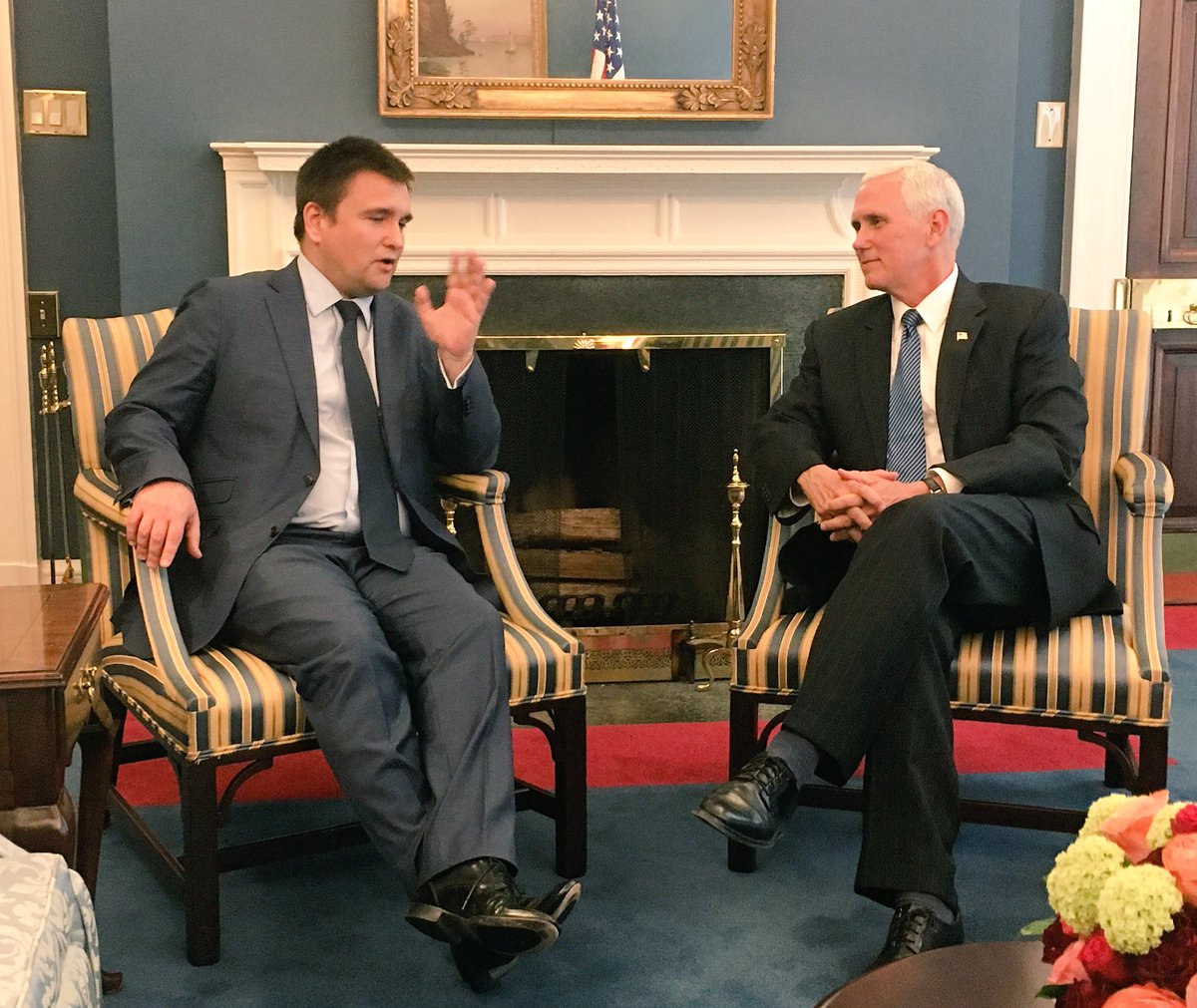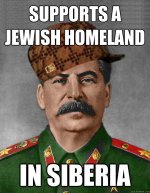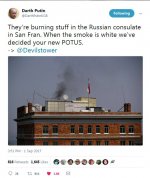- Reaction score
- 9,507
- Points
- 1,160
And as a result - Pre-emption
https://www.cnas.org/publications/reports/the-unsettling-view-from-moscow
Comment: A 16 point priority list of things the Yanks need to do to manage Moscow? That's not a strategy. I don't know what to call it - perhaps just a statement of how bad things are.
Interesting thoughts about front and rear and cyberspace. Where does an anti-Russian server located in Toronto sit on the Priority Target list?
APRIL 27, 2017
The Unsettling View From Moscow
Russia's Strategic Debate on a Doctrine of Pre-emption
By Alexander Velez-Green
A rising number of Russia’s senior military strategists are advocating for the adoption of a doctrine of pre-emption for the defense of their nation. This doctrine would be intended to protect the territorial integrity and vital national interests of the Russian Federation. To achieve these fundamentally defensive aims, Russian military strategists argue that if an attack on Russian vital interests appears imminent, Moscow must be prepared to use strategic non-nuclear or limited nuclear force first in order to deter or defeat the United States or NATO. Pre-emption could occur in crisis or in the early stages of an escalating conflict. Russian advocates of pre-emption argue that the pre-emptive attacks on U.S. or NATO targets could serve one or more of three purposes.
1. Deterrence by cost imposition. Pre-emptive attacks on countervalue targets could provide a “punch in the nose” that deters U.S. or NATO aggression by communicating to Western policymakers and publics alike that the costs of attacking or escalating a military confrontation with Russia will outweigh any plausible benefits.
2. Deterrence by denial. Pre-emptive attacks on counterforce targets could degrade U.S. or NATO power projection capabilities, and change the “correlation of forces,” such that Washington and other NATO capitals no longer believe that they can prevail in a major war, at acceptable levels of escalation, against Russia.
3. Pre-emption as a defeat mechanism. Some advocates argue that pre-emptive attacks on key Western aerospace – and other – capabilities may allow the Russian armed forces to degrade or eliminate U.S. and NATO forces’ comparative advantages, such as long-range strike, thereby improving Russia’s relative military-operational position.
Russia’s potential adoption of a military doctrine based on pre-emption appears to remain in debate. The Kremlin does not yet appear to have shifted to a pre-emptive posture, based on open-source reporting. However, arguments for Russia’s shift to pre-emption seem to have gained traction in Moscow since the mid-2000s. And there is a significant likelihood that Moscow may ultimately endorse pre-emption for the defense of the Russian state in the coming decades.
Consideration of a pre-emptive military doctrine is motivated first by Russian policymakers’ dismal geopolitical outlook. Moscow sees the United States as the world’s sole remaining superpower, intent on maintaining its position by constraining aspirant powers and imposing its own will on other nations – chief among them Russia. The Kremlin has indicated as well its belief that the United States would be willing to use force to impose its will on Russia in the future, if Russia is not prepared to defend itself.
Simultaneously, a growing number of Russian military strategists forecast that defensive or retaliatory operations alone will soon be insufficient to protect Russia’s vital interests. They assess that a host of new military technologies are collapsing the battlespace and giving growing advantage to the side that escalates first. These systems will allow both Russia and the United States to act more rapidly across broader geographic expanses than before. Moreover, many of these emerging technologies – including cyber, counterspace, conventional prompt global strike (CPGS), and certain autonomous weapons – may hold Russia’s strategic nuclear forces at unprecedented risk in the coming decades.
From a Russian perspective, seizing the initiative will be the key to deterrence or if necessary military defeat of Western aggression in this collapsing battlespace. Pre-emption advocates contend that if Moscow does not escalate first in a future crisis or conflict, then the United States and its allies will. If that happens, they fear that Russian defenses will be unable to repel or absorb the U.S. or NATO attacks on Russian vital interests. They expect further that the Russian Federation will be unable to seize back the initiative once it is lost. Indeed, if the initial period of this future war is as devastating as many expect, the Russian armed forces may have limited retaliatory options left.
Russia’s adoption of a defensive doctrine of pre-emption would severely complicate efforts by U.S. and NATO policymakers to deter Russia or manage a future crisis or conflict on NATO’s eastern flank – such as a Baltic contingency – without triggering runaway escalation. It would deny Russian, U.S., and NATO officials the time required to determine whether an attack is actually imminent and enact a proportionate response. The result would be to increase the risk of rapid early military strikes and rampant escalation. This will be especially dangerous in the coming years. In view of the growing perceived fragility of Russian and U.S. nuclear forces, once war begins, it may prove difficult to contain at non-nuclear levels.
The United States should therefore take steps to dissuade Moscow from shifting to a doctrine of pre-emption. It is beyond the scope of this study to offer exhaustive recommendations to this effect. As a starting point, U.S. policymakers should seek to reduce both the expected value of and the perceived need for a doctrine of pre-emption, as seen by Moscow.
To reduce the expected value of pre-emption, as seen by Moscow, the United States should:
1. Seek recognition of “rules of the road” for cyber and counterspace operations.
2. Prioritize the development of more resilient U.S. and NATO operational concepts.
3. Demonstrate NATO’s emphasis on resilience in future military exercises.
4. Boost investment in cyber resilience.
5. Expand investment in space resilience.
6. Bolster conventional deterrence in Europe.
7. Sustain Third Offset technological, doctrinal, and organizational innovations.
8. Reaffirm the United States’ intent to respond forcefully to Russian aggression.
9. Engage the American public on the costs of inaction in the face of foreign aggression.
10. To reduce Moscow’s perceived need for pre-emption, the United States should take a complementary but distinct set of steps:
11. Restore U.S.-Russian military-to-military contacts.
12. Sustain engagement with Russia on NATO ballistic missile defenses.
13. Consider limitations on U.S., Russian, and Chinese CPGS forces.
14. Promote the responsible use of military autonomy.
15. Clarify the United States’ preference against pre-emption.
16. Engage Russia on geopolitical concerns.
This policy approach is not without risks. Yet, the evolving security environment demands a more active U.S. strategy. If the Russian Federation officially adopts a defensive doctrine of pre-emption, it will signify the opening of a deeply concerning chapter in U.S.-Russian relations. That chapter would be defined by more acute fear, hastening timelines, and perilous risk-taking in a security environment defined by uncertainty. It would constitute a return to Cold War–level tensions, only this time with more ways for the United States and Russia to stumble into potentially catastrophic escalation than before.
The Unsettling View from Moscow
Russian policymakers believe their nation is under siege. The eastward march of liberalism in post–Cold War Europe is seen by the Kremlin to pose an existential threat to the Russian state. Meanwhile, rapid shifts in the military-technological environment are simultaneously exposing Russia to U.S. or NATO military coercion. These trends inform arguments by Russia’s top military strategists in favor of what they perceive to be a defensive doctrine of pre-emption.
A Dismal Geopolitical Outlook
Moscow has identified the United States and its NATO allies as the Russian Federation’s greatest threats today and for the foreseeable future.1 This pronouncement is rooted in Russian policymakers’ understanding of U.S. hegemonic intent. Russian officials believe that the United States is actively working to weaken the Russian state in order to fortify its own position as the world’s sole remaining superpower.2
They cite a host of U.S. policies as evidence of this intent. For instance, Russian officials, including President Vladimir Putin, often characterize NATO expansion in the 1990s and 2000s as an effort to isolate and subordinate Russia.3 They argue similarly that U.S. activities in Georgia, Ukraine, and Syria are motivated by a desire to cultivate U.S. proxies in Russia’s near abroad. Russian analysts say the United States ultimately hopes to use these proxies to stir dissent within Russia itself.4
These attempts to co-opt or reorient regional actors to disadvantage Russia are not isolated events, according to Russian analysts. Instead, they sit within a long history of U.S.-backed “color revolutions” in Europe, North Africa, the Middle East, and Central Asia.5 U.S. analysts often characterize Russian military-operational art as “hybrid warfare.” Yet, Russian political-military thinkers are clear in their assessments that it is the United States that is using a combination of political, economic, information, and other non-military instruments to destabilize foreign nations.6
Vladimir Putin speaks in July 2015. He has forcefully criticized what he characterizes as the United States’ ongoing efforts to impose its will on weaker nations.
Lastly, Russian policymakers find little reason to expect that future U.S. interference in other nations’ domestic affairs will remain non-military. The Russian Federation has repeatedly highlighted and condemned what it has seen as the United States’ unlawful use of force to impose its will on weaker nations in the post–Cold War era. Frequent citations to this effect include U.S. actions in Yugoslavia, Iraq, and Libya.7 The regularity and severity with which Russian officials criticize the United States’ alleged overreliance on military force strongly imply their belief that the United States would be willing to use force to impose its will on Russia, if Russia is not prepared to defend itself.
In this context, some Russian officials believe that President Donald J. Trump’s election may offer new opportunities for bilateral political engagement.8 Yet Moscow also knows that U.S. skepticism of Russia has strong and lasting bipartisan support. This means that any gains achieved through U.S.-Russian engagement over the next four or eight years may prove limited or subject to reversal after Trump leaves office. As a result, Russian policymakers assess that the United States and its allies will remain a serious and lasting threat to Russian national security for the foreseeable future. Senior Russian officials thus say quietly that “Cold War 2.0” has begun between the United States and Russia.9
A Collapsing Battlespace
Rising U.S.-Russian geopolitical tensions are paralleled by rapid shifts in the military-technological environment. Russian strategists forecast that a host of novel or improved military technologies will allow both parties to act more rapidly across broader geographic expanses than before. At the same time, new weapon systems integrating greater autonomy and harnessing new physical principles promise to inject even further uncertainty into the U.S.-Russian correlation of forces. These shifts threaten to erode Russia’s ability to deter or defeat future U.S. aggression by defensive or retaliatory operations alone. In this regard, they constitute a primary reason why a rising number of Russia’s senior military strategists endorse a doctrine of pre-emption.
Russian analysts in Military Thought and other outlets consistently forecast that major wars in the future will be fought across all domains – not just in the land, sea, and air.10 They write that fighting will occur in outer space as adversaries attack one another’s space-based military architectures in order to cripple space-dependent air, sea, and land forces.11 And fighting will take place in the information domain – a domain unto itself – the “high ground” of modern warfare upon which all else rests.12
Russian forecasts stress equally that fighting in these domains will occur at once-unfathomable speeds.13 As Major General I.N. Vorobyov (Ret.) writes, “Its Majesty Time has sped up its flight.”14 Novel informational capabilities will allow belligerents to coordinate action by widely dispersed strike units with unprecedented synchrony and precision.15 At the same time, high-precision weapons – particularly conventional prompt global strike assets – will allow belligerents to strike one another’s vital targets faster than ever.16 And, as many analysts predict, novel attack methods – leveraging dramatic advances in military autonomy, directed energy, electromagnetics, nanotechnology, genetic engineering, and even the ability to control geological and climatic phenomena – may put the defense at a significant disadvantage relative to an increasingly diverse and deadly array of offensive tools.17
Russian authors posit that enemy targets will no longer be engaged successively in major wars.18 Traditional notions of the front and the rear, strong points, flanks and junctions, and combat-contact lines will be largely outmoded.19 Where is a nation’s flank when the enemy can hold its entire territory at risk through a combination of an expansive array of advanced sensors; exquisite information networks capable of synthesizing large amounts of targeting data in real time; and a balance of long-range precision strike assets that outmatch enemy air defense capabilities? Where is the front line when the objective in future wars will be to ensure that no enemy soldiers ever make it close to a defending nation’s borders?20
https://www.cnas.org/publications/reports/the-unsettling-view-from-moscow
Comment: A 16 point priority list of things the Yanks need to do to manage Moscow? That's not a strategy. I don't know what to call it - perhaps just a statement of how bad things are.
Interesting thoughts about front and rear and cyberspace. Where does an anti-Russian server located in Toronto sit on the Priority Target list?






